As a content writer, if you’re not serious about creating something UNIQUE with your articles, your content will get LOST in a sea of generic content!
With AI and endless content flooding the internet, it’s more important than ever to make your work shine.
So, how do you do that? By adding Subject Matter Expert (SME) quotes to your articles.
Not only does this add credibility, but it also aligns with Google’s EEAT (Experience, Expertise, Authority, and Trustworthiness) guidelines.
But, to be honest, interviewing an SME is hard.
It’s stressful.
It’s time-consuming.
It can feel like trying to solve a Rubik’s cube blindfolded.
But you’re here because you want to do it anyway—and do it well. This article will walk you through my process of interviewing SMEs.
Who is a Subject Matter Expert and Why Should You Care About Them?
Let’s imagine you’re tasked with creating an article on how to save for retirement in your 50s.
You’ve done your research, read countless blogs, and even pulled some stats from government websites. But when you sit down to write, it still feels like something’s missing.
Probably because you’re still in your early 30s and you have no personal experience to back this up!
So, what can you do in this situation?
Connect with a thought leader in the finance industry—a Certified Financial Planner specializing in helping late savers prepare for retirement. This will open you up to interesting stories or expert advice you can add to your article.
An SME is someone with deep expertise in a specific field. They’re the go-to person when you need credible, detailed information that Google alone can’t provide. You should care about them because they help you turn your article from bland to brilliant!
Here’s How to Interview a Subject Matter Expert
Before the Interview: Prepare
Success loves preparation, and that’s especially true when interviewing a Subject Matter Expert (SME). Here’s how to start:
a. Understand the direction of your article
Got a brief? Perfect. If not, no worries—you just need to answer some key questions for yourself:
- What’s the goal of this article?
- Who is the target audience?
- What do they care about, and what problems are they looking to solve?
When you’re clear on these, everything else (your questions, the expert’s input, etc.) will flow naturally.
b. Fully understand your reader’s pain points
Who are you writing for, and what keeps them up at night? Maybe your readers are struggling to understand a complex topic, or they want actionable advice on a specific challenge.
The trick here is to identify the part of your article where an expert’s voice would resonate most.
c. Draft open-ended questions
Great interviews start with great questions. To help, here are three solid questions Victor wrote about on Leaps blog:
- What’s one thing people in [target audience] consistently get wrong about [topic]?
- What’s the biggest pain point when [trying to achieve X]?
- What do you see as the most overlooked aspect of [topic]?
These questions will not only get your SME talking but also deliver insights that make your article pop.
d. Do your research on SMEs
Not all experts are created equal. Focus on thought leaders who actively share their knowledge online. From my experience, you can find them on Linkedin, Reddit, or even Twitter.
Focus on reaching out to people with websites, or active social media profiles.
Once you have a shortlist, dig a little deeper—read their work, listen to their interviews, and make sure they’re a good fit for your article.
e. Choose the right format for your interview
A text-based or survey-style interview can work, but I love audio or video interviews. Why? Because they capture nuances in tone, allow for follow-up questions, and feel more conversational. You can always discuss with your interviewee to know what works for them
>>> Read More: Writing Was Just A Hobby—Until I Made It A Career
During the Interview: Make It Count
a. Set the tone
Create a comfortable atmosphere for your interviewee. Start with small talk to ease into the conversation and reassure them that the interview is a safe space for open discussion.
b. Record the interview with Fireflies.ai
There were days when I’d manually transcribe interviews—what a nightmare. These days, I use Fireflies.ai, and let me tell you, it’s a lifesaver.
Fireflies is an AI meeting assistant that records, transcribes, and summarizes your interviews automatically. It even integrates seamlessly with tools like Google Meet and Zoom.

Here’s how to use Fireflies.ai for your next meeting:
- Visit fireflies.ai
- Sign up using your Google account. This automatically connects with your Google Calendar.
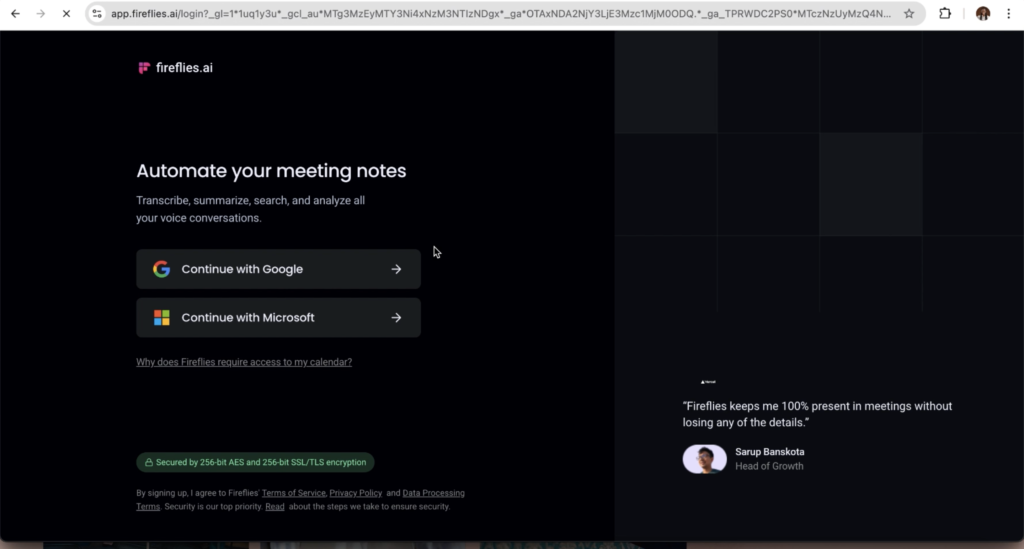
- Review your meeting settings
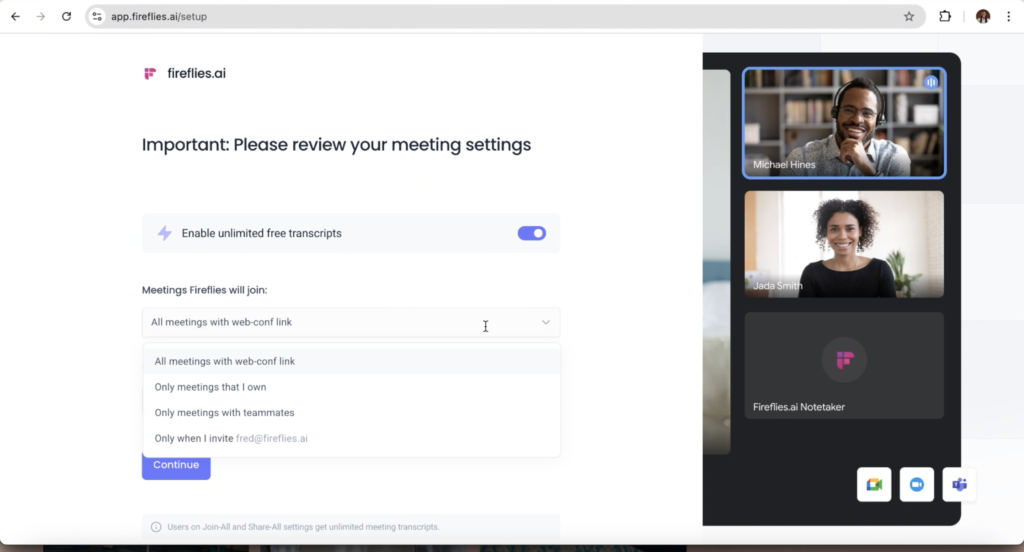
- Open your dashboard and click the “Home” icon at the top right.
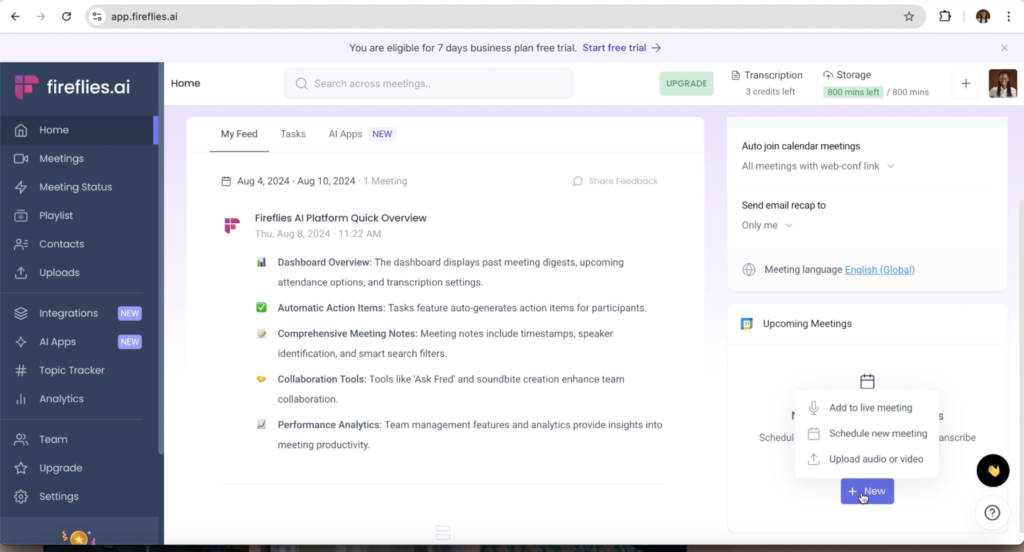
- Click “Create a Meeting” in the bottom-left corner, and select Google Meet as your platform.
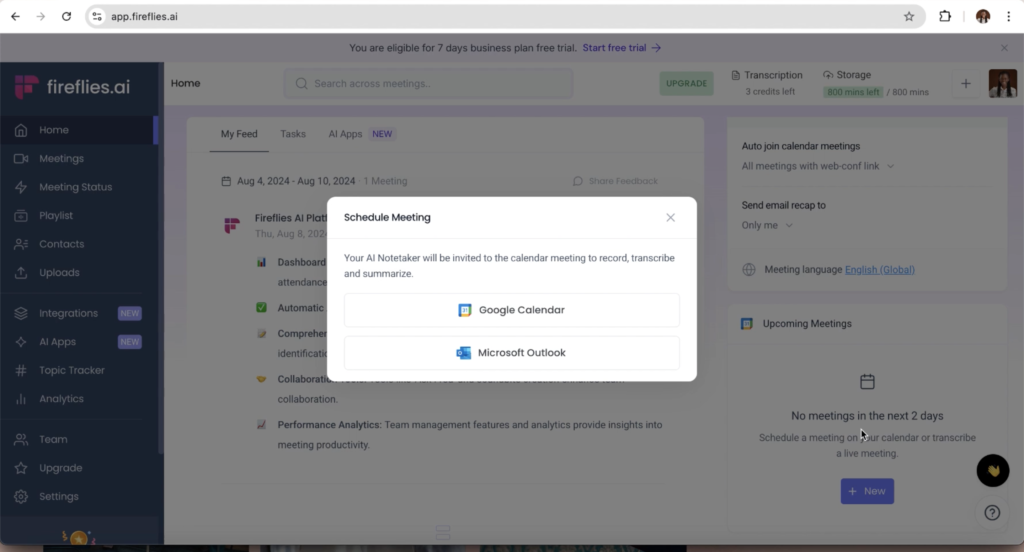
- Invite Fred. That’s Fireflies’ bot! Most times, Fred (fred@fireflies.ai) will be added automatically. If not, you can add him manually by adding him as a guest when scheduling.
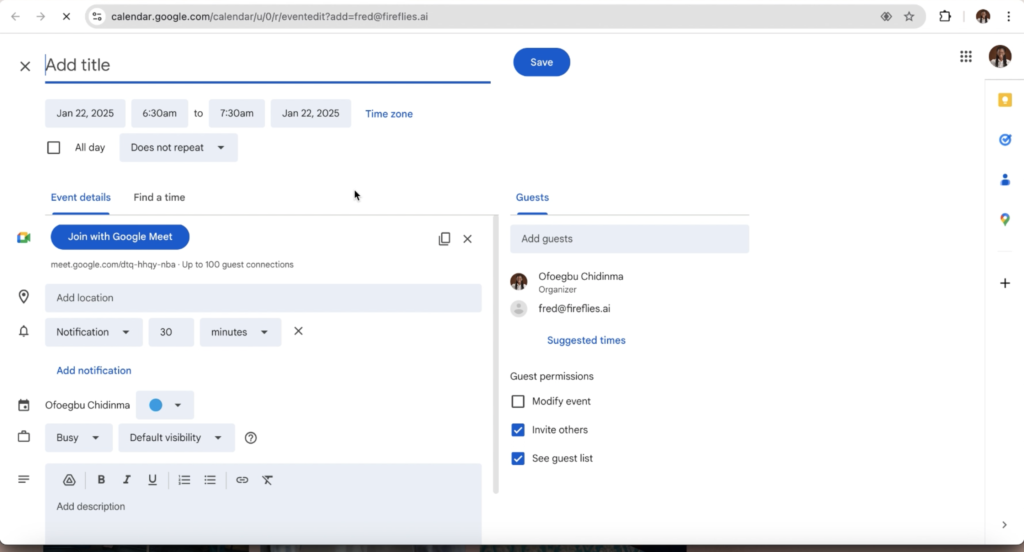
- Once the meeting starts, Fred will hop on automatically. Voila!
c. Listen carefully
Make sure you don’t interrupt the speaker while they’re talking. Let them finish their thoughts before asking them another question.
>>> Read More: 5 Content Writers Share Their Secrets Strategies For Landing High-Ticket Clients
3. After the Interview: Bring It All Together
The interview’s done—what’s next?
a. Review the transcription
Fireflies will send you an email with the transcript link. Fireflies generates transcripts with 90%+ accuracy in just 15–20 minutes after the meeting. It’s mind-blowing!
Go through it carefully to pick out the best quotes, insights, and key points. Use these to strengthen your article
Pro Tip: Fireflies’ “Smart Search” feature makes this easy. Just search for specific terms or topics within the transcript to save time.
b. Add value to the content
Remember, the expert’s quotes should complement your article, not overpower it. Weave their insights into your narrative to create a cohesive, engaging piece.
c. Don’t forget to send a thank-you note
This one’s important. Send a quick thank-you email to your SME, appreciating their time and insights.
In Conclusion
Interviewing an SME can feel like a lot of work, but with the right prep and tools—it’s totally doable and less stressful.
Not only will you stand out in a sea of generic content, but you’ll also build credibility and provide real value to your readers.
Rooting for you!

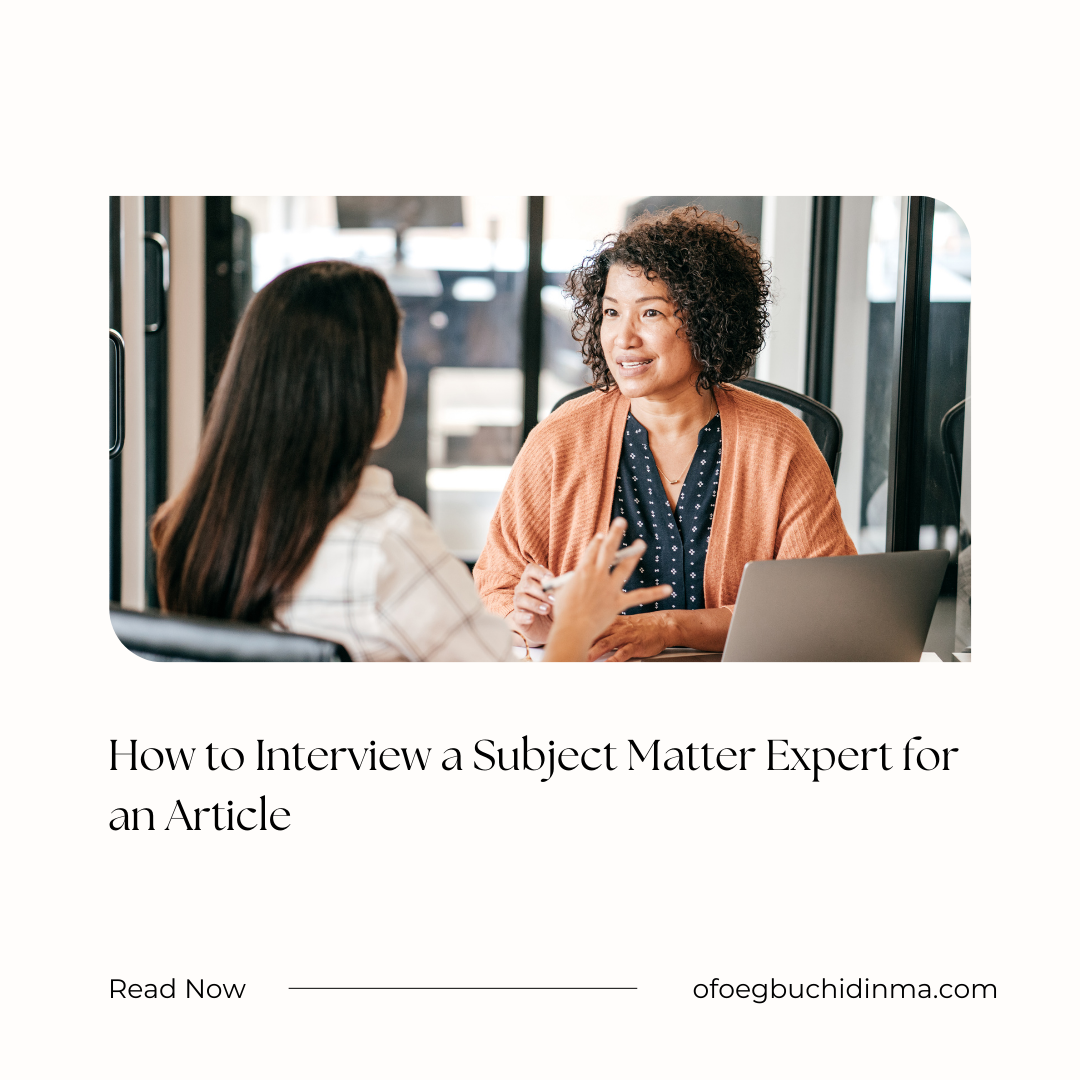



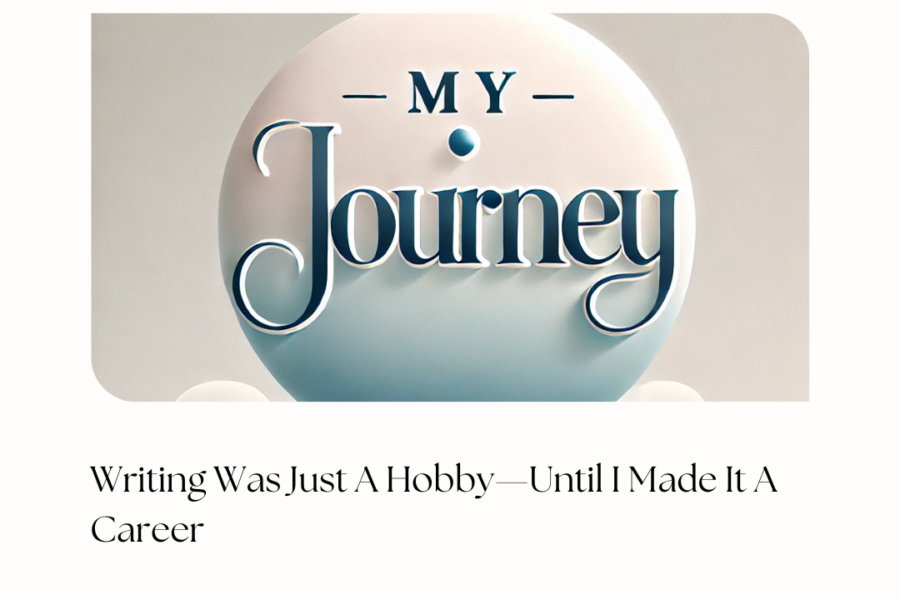
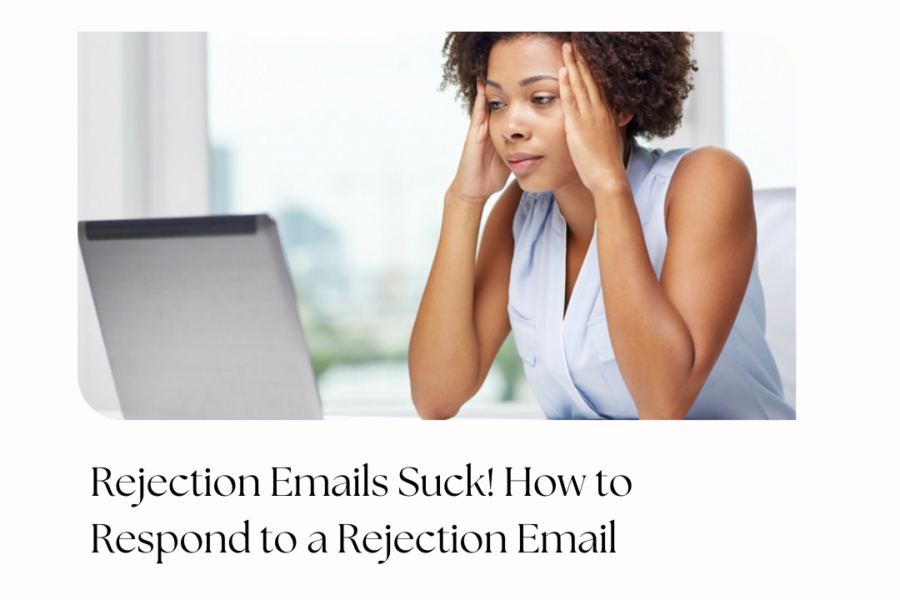
Leave a Comment